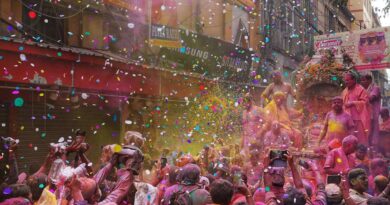Dili’s Storytellers: Sharing Our Lives
Have you ever wondered how stories shape our lives? In Dili, the capital of Timor-Leste, storytelling is much more than just a pastime. it’s a vibrant part of the culture. Locals gather to share tales that reflect their experiences, dreams, and heritage. This article dives into the world of Dili’s storytellers and explores why their stories matter.
What Makes Storytelling Important in Dili?

Storytelling is a form of art that connects people. In Dili, it serves as a bridge between generations. Elders share wisdom while the youth bring fresh perspectives. This exchange keeps traditions alive and fosters community bonds.
But why do stories hold such power? Here are a few reasons:
- Preservation of Culture: Stories pass down values and beliefs.
- Education: They teach important life lessons in an engaging way.
- Connection: Sharing stories builds relationships and understanding.
- Entertainment: They provide joy and laughter, making life richer.
Who Are Dili’s Storytellers?

Dilis storytellers come from all walks of life. From grandmothers to young adults, everyone has a tale to tell. Some are traditional storytellers, while others weave modern narratives. They share experiences that resonate with listeners, whether through humor, drama, or folklore.
Local storyteller Maria, for example, captivates her audience with tales of Timor-Leste’s history. She explains, Each story is a thread in the fabric of our culture. This highlights how each story contributes to a larger narrative about identity and resilience.
What Types of Stories Are Told?

The stories in Dili range from historical accounts to everyday life experiences. Here are some popular types:
- Folklore: Tales of gods, spirits, and moral lessons.
- Personal Narratives: Stories from daily life that reflect struggles and triumphs.
- Historical Accounts: Narratives that highlight significant events in Timor-Lestes past.
- Humor: Funny anecdotes that bring laughter and joy to the community.
Each category serves a purpose. Folklore teaches lessons, personal narratives create empathy, and humor brings people together. This variety keeps storytelling alive and relevant.
How Are Stories Shared in Dili?

Storytelling in Dili often happens in communal settings. Parks, markets, and homes become vibrant stages for storytellers. People gather, sit close, and listen intently, creating an atmosphere of connection.
In addition to live storytelling, digital platforms are gaining popularity. Social media allows storytellers to reach wider audiences. For instance, local youth share their stories through videos and podcasts, blending tradition with modern technology.
Why Should We Care About Dili’s Storytellers?
Understanding Dili’s storytelling culture helps us appreciate the diversity of human experience. It shows how stories can unite people, regardless of background. Here are some key points to consider:
- Empathy: Listening to different stories fosters understanding.
- Preservation: Supporting storytellers helps keep traditions alive.
- Inspiration: Stories can motivate us to chase our dreams.
- Connection: They remind us of our shared humanity.
How Can You Get Involved?
Want to experience Dili’s storytelling culture firsthand? Here are some ways to get involved:
- Attend Local Events: Join storytelling nights at local cafes or parks.
- Share Your Story: Everyone has a tale to tell. don’t be shy!
- Support Local Artists: Buy books or recordings from storytellers.
- Spread the Word: Encourage others to appreciate storytelling.
By participating, youll not only enjoy rich narratives but also help keep this culture alive.
Common Misconceptions About Storytelling
Some people think storytelling is only for children or that it’s outdated. However, this couldn’t be further from the truth! Here are some common misconceptions:
- it’s Just Fiction: Many stories are based on real-life experiences.
- Only Experts Can Tell Stories: Everyone has a story worth sharing.
- it’s Only for Entertainment: Stories educate and inspire as well.
Understanding these misconceptions helps us appreciate the depth of storytelling.
What Can We Learn from Dili’s Storytellers?
Every storyteller in Dili has a lesson to share. From courage in adversity to the importance of community, these tales resonate with universal themes. They remind us that every life is a story worth telling.
As the famous author Neil Gaiman once said, Stories may well be lies, but they are good lies that say true things. This highlights the power of storytelling to convey truths about our world.
Conclusion: Embracing the Power of Storytelling
Dili’s storytellers play a crucial role in preserving culture and fostering community. Their tales connect generations, enrich lives, and inspire change. By engaging with these stories, we not only learn about Timor-Leste but also about ourselves.
So, the next time you have a chance to hear a story, don’t miss it. Remember, every storyteller is a keeper of culture and a bridge to understanding. Lets celebrate their voices and share our own stories, too!
For more about storytelling cultures around the world, check out this insightful article from National Geographic.
Are you ready to dive into the world of storytelling? Grab a friend, find a local event, and let the stories inspire you.


